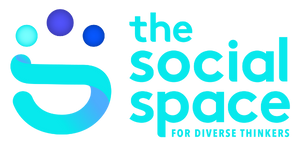RESEARCH EVIDENCE
While social skills training is an important treatment priority for many young adults with ASD and other social challenges, much of the research in this area has focused on interventions with children. Very few researchers have devoted time to investigate the efficacy and effectiveness of social skills training for young adults. The lack of evidence based social skills programs to improve social competence and promote friendship formation in adolescence is what inspired the development of the PEERS® program. The PEERS® for Young Adults social skills program bridges off the adolescent program, with continued use of a parent-assisted model for social coaching to reinforce the use of skills in natural settings.
Using a similar model to the PEERS® for adolescence social skills program, the PEERS® for Young Adults program recruits a social coach (i.e. a parent, sibling, peer mentor, job coach, life coach, or other family members) to help improve skills in socially motivated adults.
In the first randomized controlled trial for the PEERS® for Young Adults, 17 young adults aged 18 to 23 with ASD participated in a study with their caregivers testing the effectiveness of the intervention (Gantman, Kapp, Orenski, & Laugeson, 2012). Participants were randomly assigned to a treatment or a delayed control group. The results indicated that the individuals who participated in treatment improved significantly more than the delayed treatment control group, particularly when it came to social skill knowledge. Caregivers noted improvements in social communication and decreased autistic mannerisms. Overall, there were improved social skills in the areas of cooperation, self-control, and assertion, as well as improved empathy and increased frequency of hosted and invited get-togethers (Laugeson, 2017).
In a second randomised controlled trial, 22 young adults aged 18 to 24 participated with their social coaches in the PEERS® for Young Adults program to test the effectiveness of the program. Participants were randomly assigned to a treatment or a delayed control group. According to the social coaches, the treatment group improved significantly in overall social skills, particularly in the areas of assertion and cooperation. They also reported a significant reduction in ASD symptoms. in which young adults showed to be more socially responsive and motivated, and were exhibiting less autism mannerisms. The results also revealed that social skills knowledge and the frequency of social engagement through hosted get-togethers improved following participation in the PEERS® program. Furthermore, most treatment gains were maintained at a 16-week follow up assessment with new improvements observed (Laugeson, 2017).
The research findings outlined above support the success and effectiveness of a parent (carer) assisted program in improving the social functioning of adults with ASD. Despite limited testing, it is expected that similar results will occur with individuals with ADHD, depression, anxiety and other developmental disabilities.
Research Studies
- Effects of an Abbreviated and Adapted PEERS® Curriculum as Part of a College Transition Program for Young Adults on the Autism Spectrum (Howorth et al., 2022).
- Improving Social Anxiety and Social Responsiveness in Autism Spectrum Disorder through PEERS® (Factor et al., 2022).
- A Randomized Controlled Trial of the Korean Version of the Program for the Education and Enrichment of Relational Skills for Young Adults (PEERS®-YA-K) With Autism Spectrum Disorder: A Pilot Study (Oh et al., 2021)
- Effectiveness, durability, and clinical correlates of the PEERS social skills intervention in young adults with autism spectrum disorder: the first evidence outside North America (Chien et al., 2021)
- A Pilot Study of a Brief Inpatient Social-Skills Training for Young Adults With Psychosis (Moe et al., 2021).
- Effects of PEERS® Social Skills Training on Young Adults with Intellectual and Developmental Disabilities During College (Rose et al., 2021).
- Brief Report: Does Gender Matter in Intervention for ASD? Examining the Impact of the PEERS® Social Skills Intervention on Social Behavior Among Females with ASD (McVey et al., 2017)
- A Replication and Extension of the PEERS® for Young Adults Social Skills Intervention: Examining Effects on Social Skills and Social Anxiety in Young Adults with Autism Spectrum Disorder (McVey et al., 2016)
- A Randomized Controlled Trial to Improve Social Skills in Young Adults with Autism Spectrum Disorder: The UCLA PEERS Program (Laugeson et al., 2015)
- Social Skills Training for Young Adults with High-Functioning Autism Spectrum Disorders- A Randomized Controlled Pilot Study (Gantman et al., 2012)
- Transition to Adulthood for High-Functioning Individuals with Autism Spectrum Disorders (Kapp et al., 2011)
- Program evaluation of an adapted PEERS® social skills program in young adults with autism spectrum disorder and/or mild intellectual impairment and social skills difficulties (Honan et al., 2022)
- Effect of PEERS® Class on Conversational Skills of Adults with Autism in College (Howorth et al., 2022)
- Fostering Friendship and Dating Skills Among Adults on the Autism Spectrum: A Randomized Controlled Trial of the Polish Version of the PEERS® for Young Adults Curriculum (Płatos et al., 2023)
